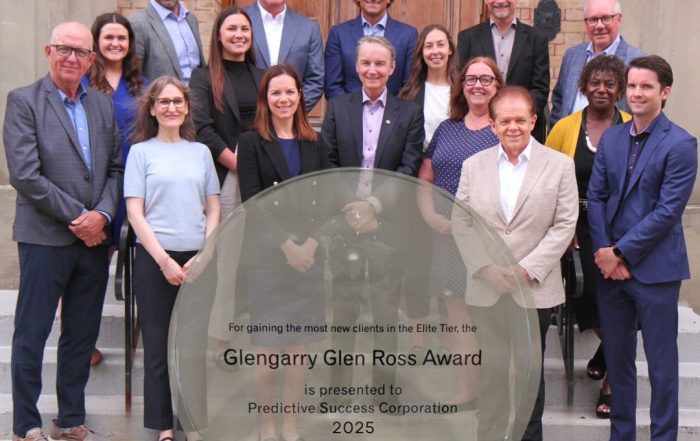Winning the Championship: People Data & Sports Management
By Alyssa Shaver |
2.6 min read
What you see is not always what you get
Data analytics have been an integral part of the sports industry since the early 1990s. Professional athletic associations use data to increase audience engagement, bolster marketing efforts, and enhance athletic performance. As of 2020, the sports analytics market has reached approximately 1.05 billion USD.
The process of player recruitment is a huge determining factor for success for any professional sporting organization. Modern professional sports franchises are starting to realize that there are tools available to take the guesswork out of this process. It’s not just about athletic performance, but about the way the whole player shows up to practices and games.
Top professional sports organizations understand this and make heavy use of people data analytics. The employment of advanced analytics gives teams an edge in these types of high stakes leagues and competitive games.
People Data is changing the game
So how does The Predictive Index fit into the big picture of data analytics in sports management? Strategy. In both team and individual sports, professional athletes and coaches are dependent on developing and executing a winning strategy. People data allows professional sports organizations to create tailored athlete matchups and put together high performing teams.
A powerful example of this is the Oakland Athletics, the Major League Baseball team that went to the playoffs on a shoestring budget using data to identify undervalued players. The Oakland A’s Executive Vice President, Billy Beane, was behind the move. At the beginning, others looked at the move as countercultural. Talent scouts would fly all over the United States to source talent, which was inefficient and time consuming. Moreover, it was not always accurate as surface level insight.
This applies to business as well—talent cannot always be spotted from the outside. Dr. Matt Poepsel of the Predictive Index puts this comparison into clear light: “If you work hard to master the people factors related to your business, you too can make a championship run. Half the world may not tune in to watch you do so, but the victory can taste just as sweet when you do.” Consider following Billy Beane’s lead: Don’t be afraid to bring in something new and innovating—it might just lead to your next top performer.
About Predictive Success
Predictive Success is an Elite Partner of The Predictive Index® has been consistently ranked in the top 10 of global partners since opening its doors in 2006. Through the Predictive Success team of experienced, professional consulting staff, we give Canadian companies the ‘edge’ to connect people to profit. We work with management teams to bring our knowledge, experience, and over a decade of partnership with The Predictive Index to work. We enable leaders with the power and the knowledge, to better motivate, lead and utilize people to the best of their ability. We have staff and local coverage in all provinces across Canada.
Sources:
https://www.mordorintelligence.com/industry-reports/sports-analytics-market
https://www.predictiveindex.com/blog/how-to-build-a-championship-caliber-roster/
https://seleritysas.com/blog/2021/03/27/how-is-big-data-analytics-changing-sports/
Related Blogs
Is Gen Z Unemployable? A Talent Optimization Perspective
Is Gen Z “Unemployable”? What the Debate Really Means for Employers A recent opinion piece in The Wall Street Journal titled Is Gen Z Unemployable? sparked widespread discussion among business leaders and HR professionals. The
Predictive Success Named #1 Predictive Index Partner Globally for Sixth Consecutive Year
Predictive Success Named #1 Predictive Index Partner Globally for Sixth Consecutive Year Excellence is rarely accidental. It is built through discipline, consistency, and an unwavering focus on results. In 2026, Predictive Success Corporation has once
Coaching and Leadership Development: How to Unlock Your Team’s Potential
Coaching and Leadership Development: How to Unlock Your Team's Potential Leadership today is more complex than ever. Expectations are higher, teams are more diverse, and change is constant. Organizations that want to thrive must invest



